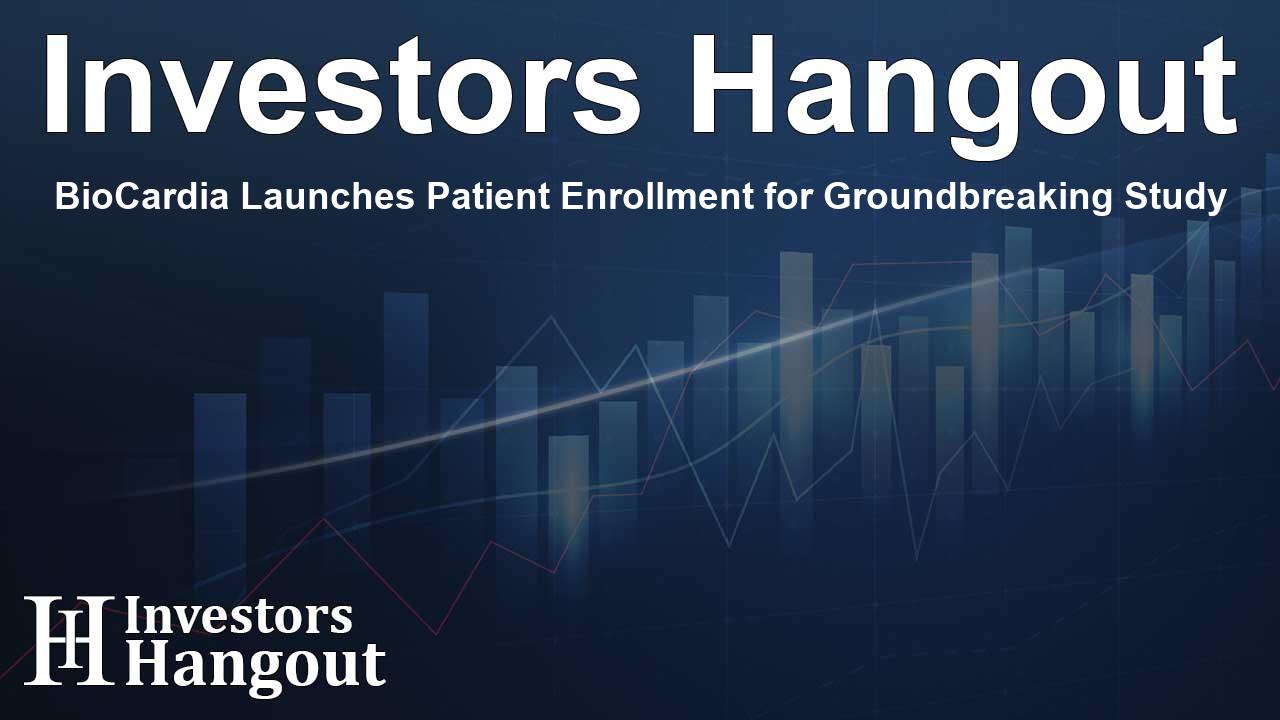BioCardia Launches Patient Enrollment for Groundbreaking Study

BioCardia Launches Crucial Patient Enrollment Phase
BioCardia, Inc. has made an exciting announcement that opens new doors for heart failure treatments. The company is now enlisting patients at the Emory University School of Medicine for its pivotal CardiAMP HF II study, designed specifically for those struggling with ischemic heart failure. This is a significant step forward, as it brings together prestigious clinical sites across the United States for this important trial.
About the CardiAMP HF II Study
The CardiAMP HF II study focuses on the innovative CardiAMP™ cell therapy product, a groundbreaking therapy aimed at enhancing the heart's function and improving the lives of patients with reduced ejection fraction. This study will compare the effectiveness of the CardiAMP therapy against a placebo, allowing all patients involved to continue their stable medical treatment as recommended.
Key Features of the CardiAMP Cell Therapy
This approach entails using a patient's own bone marrow cells, which are harvested and then delivered to the heart through a minimally invasive procedure. The aim is to stimulate natural healing mechanisms, thereby improving the performance of the heart. This system has been recognized for its safety and effectiveness in clinical practices.
Expert Leadership Fuels Confidence
Dr. Arshed Quyyumi, a respected figure in the cardiology field and co-director at Emory's Clinical Cardiovascular Research Institute, will serve as the principal investigator for this trial. His enthusiasm stems from the promising results observed in earlier phases and the confidence that participants will have a meaningful opportunity to engage in this transformative study.
Impact of Chronic Heart Failure
Chronic heart failure, specifically with reduced ejection fraction (HFrEF), affects millions of adults in the United States. As research continues to highlight the growing prevalence of this condition, the CardiAMP HF II study represents a proactive initiative to explore new treatment avenues that could fundamentally change patient experiences and outcomes.
Statistics of Heart Failure
Recent estimates indicate that nearly 4 million individuals could be living with HFrEF by 2030. The most concerning aspect of heart failure is how it limits daily activities and overall quality of life. Many patients rely on existing treatments, yet as their condition progresses, they often find that their symptoms become too severe to manage effectively.
The Promise of Innovation with CardiAMP
The CardiAMP cell therapy has been granted Breakthrough Designation by the FDA, highlighting its potential. This innovative treatment is tailored to provide a high dosage of cells, along with a detailed pre-procedural analysis for optimal patient selection, showcasing a new frontier in cardiac therapy.
Previous Trials and Efficacy
Historically, trials involving CardiAMP have yielded positive trends towards increased survival rates and reduced occurrences of major cardiac events. These findings are particularly noteworthy in patients exhibiting elevated stress markers, as improvements in quality of life were statistically significant among treated individuals.
BioCardia’s Vision for the Future
As BioCardia moves forward, the team's commitment to excellence in clinical and regulatory processes strengthens the company’s position in the biotherapeutics arena. They aim to bridge the gap between innovative therapies and regulatory approval, a vital step for numerous patients seeking alternative solutions for their heart conditions.
Supporting Patient-Centric Research
For BioCardia, it is about more than just advancing therapies; it’s about creating hope for patients who feel they have exhausted their options. Their goal is to empower individuals with advanced treatment opportunities through rigorous clinical trial designs.
Frequently Asked Questions
1. What is the CardiAMP HF II study?
The CardiAMP HF II study is a clinical trial evaluating the safety and effectiveness of the CardiAMP cell therapy for patients with ischemic heart failure.
2. Who will lead the trial at Emory University?
Dr. Arshed Quyyumi, a leading cardiology expert, will serve as the principal investigator for the trial at Emory University School of Medicine.
3. How does the CardiAMP therapy work?
This therapy utilizes a patient’s own bone marrow cells, which are collected and delivered to the heart to potentially improve function and induce healing.
4. What are the expected outcomes of this trial?
The study aims to show improved survival rates, reduced cardiac events, and better overall quality of life for the patients enrolled.
5. How can patients participate in the study?
Patients can inquire about participation by contacting the research team at Emory University for more details on their eligibility and the enrollment process.
About The Author
Contact Dominic Sanders privately here. Or send an email with ATTN: Dominic Sanders as the subject to contact@investorshangout.com.
About Investors Hangout
Investors Hangout is a leading online stock forum for financial discussion and learning, offering a wide range of free tools and resources. It draws in traders of all levels, who exchange market knowledge, investigate trading tactics, and keep an eye on industry developments in real time. Featuring financial articles, stock message boards, quotes, charts, company profiles, and live news updates. Through cooperative learning and a wealth of informational resources, it helps users from novices creating their first portfolios to experts honing their techniques. Join Investors Hangout today: https://investorshangout.com/
The content of this article is based on factual, publicly available information and does not represent legal, financial, or investment advice. Investors Hangout does not offer financial advice, and the author is not a licensed financial advisor. Consult a qualified advisor before making any financial or investment decisions based on this article. This article should not be considered advice to purchase, sell, or hold any securities or other investments. If any of the material provided here is inaccurate, please contact us for corrections.
